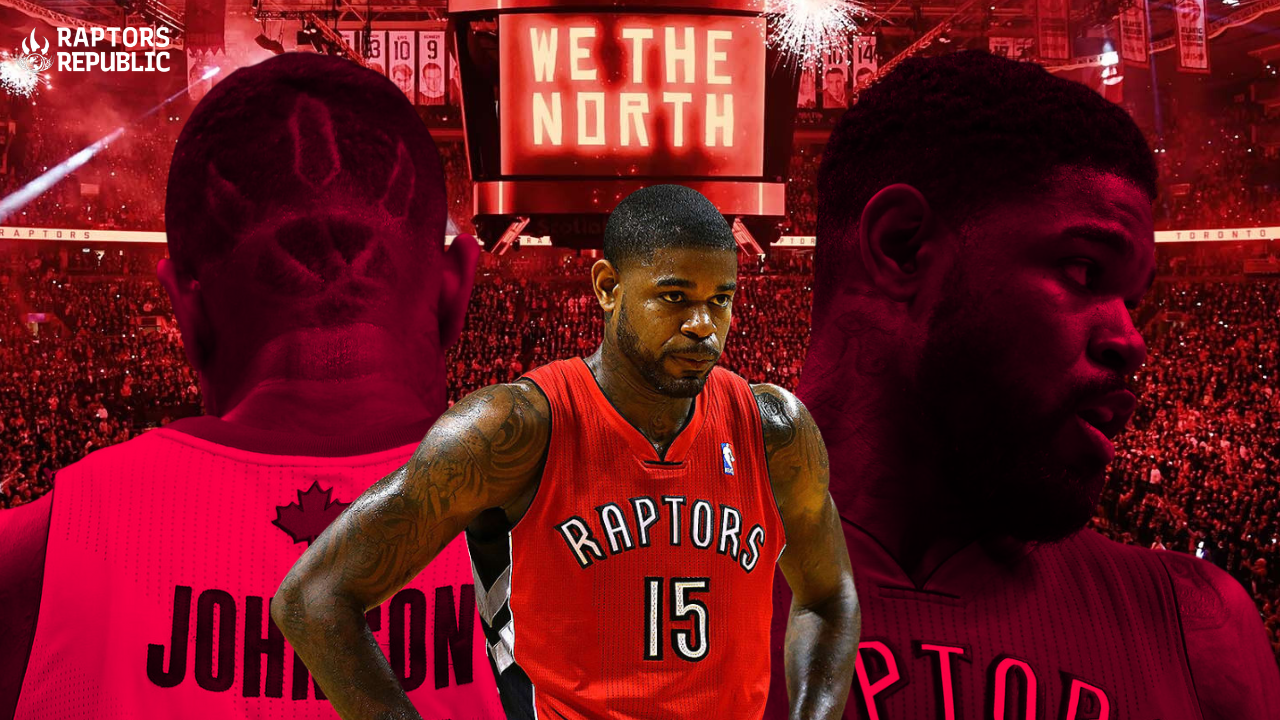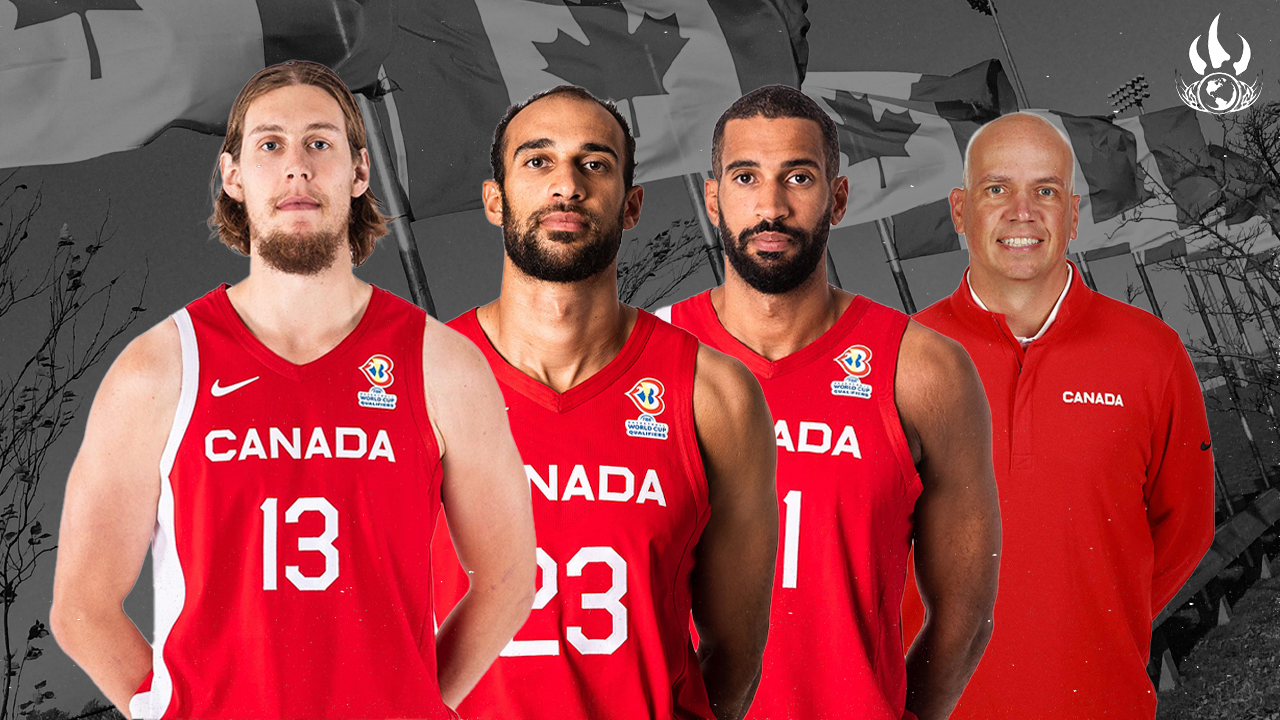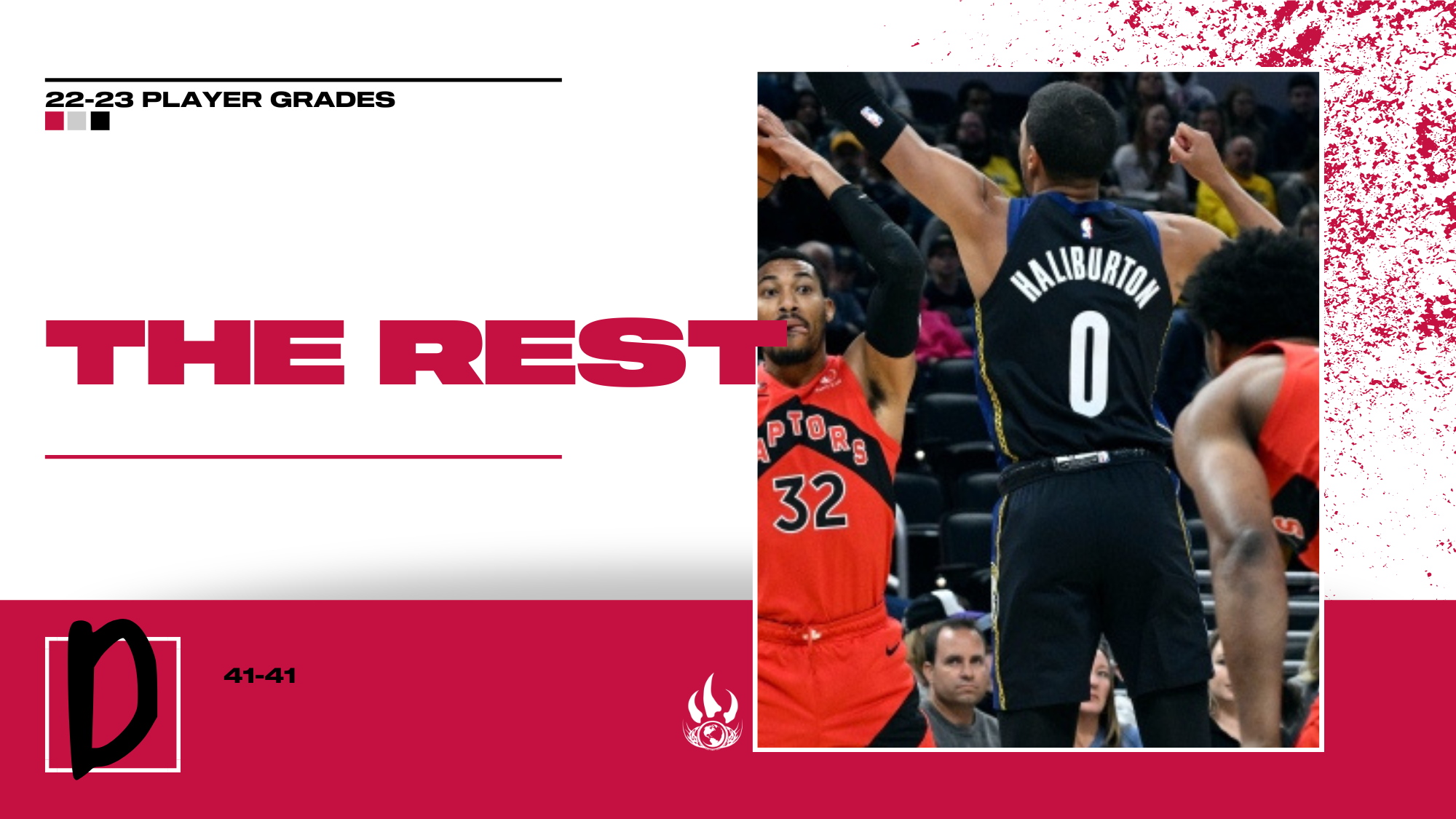The 2013-14 Raptors were one of the NBA’s most enjoyable stories of that season. Big transactions, big comebacks, big narratives, and a big market being rewarded with winning basketball.
Kyle Lowry was finally seen as good (but still perceived as less than he was, an All-NBA level guard), DeMar DeRozan was a first time All-Star, Terrence Ross was a future-facing tertiary player, Jonas Valanciunas was bashing and crashing around the paint efficiently, and their team was filled out with capable role players. One notable name is missing here, and it’s Amir Johnson.
In my time watching basketball, Johnson has been one of the most impressive role players I’ve ever seen. The analytics/3-point revolution was just about to make a huge leap, and players were a little less specialized in what they provided on the floor. Don’t get me wrong, the skill level is considerably higher as time goes on, but who gets to do what shifted hard for a time in the NBA as teams chased the most efficient offense and dabbled in heliocentric styles. The Mavericks, for example, putting spacing boxes on their practice courts for players to stand in to increase the room that Luka Doncic had to operate with his pick n’ roll partner. Creating simpler reads for your initiator who dependably created advantages.
Darko Rajakovic’s scholarly look at the development of the pick n’ roll, and his highlighting of hyper-specific, advantageous quadrants on the floor; screen angles, and the like. These are all great looks into what makes basketball work. However, it has made the “role player swing games” fairly similar looking. Typically, it comes down to if you make the open threes that fall into your hands as a result of the other team overloading on stars. Watching the balance of a playoff series swing wildly depending on how Jae Crowder’s 10 3-point attempts went on a given night was never my idea of fun, personally.
So, I wanted to talk about how great Amir Johnson is, and how he nearly swung a series by dominating in the gritty in-between of the court. Game 7, and the upstart Raptors vs. the Brooklyn Nets in their final year of trying to compete as “the Old Celtics plus Joe Johnson”. A bunch of drama baked into into it with the Nets allegedly gaming the end of their schedule to get the Raptors in a series, and of course, Masai Ujiri with a legion of fans in front of him, bellowing out his legendary war call of “FUCK BROOKLYN“.
Blitz at your peril. He can put it on the floor.
Johnson finished with 20 points and 10 rebounds in only 22 minutes played, before he fouled out. Only one of his baskets in the whole game was a play run for him – a cross screen with Lowry to get post position against Andray Blatche. Gather, faceup, jab, jab, pound dribble and rolling those shoulders across Blatche as he tries to catch up, before Johnson unleashed his uniquely bowed, hook/push shot. That wouldn’t be the last of that shot, of course, just the last look they’d put squarely in his hands. Everything that came after, and everything that came before was from Johnson finding opportunity where some players don’t, and taking it when other players couldn’t.
Even the Raptors first win of the series (Game 2) saw Johnson extend the lead 2 to 4 with 17 seconds left. Why? Because the Nets loaded up on everyone else and left Deron Williams to guard Johnson by himself on a SLOB with an empty half-court, and a lob over his head granted Johnson a wide open lane to the rim. A game Johnson finished with 16 & 9 on 80-percent shooting. The ultimate opportunist.
In his time with the Raptors, he never had a usage percentage in the top half of bigs, and his PSA (points per shot attempt) never dipped below the 83rd percentile. Over his 6 years with the Raptors he averaged above the 90th percentile. He even became an elite assist/usage big in the latter half of his Raptor years. A brilliant player.
Johnson was great at playing off of Valanciunas’ immense gravity on the inside (he drew a lot of box-out attention) for putbacks. His bounce + extendo arms (7’4 wingspan, 6’9 height) snuck up on a lot of players, whether he was carving out room in the paint, or skying for the ball after trailing a drive.
The coolest thing about Johnson’s game, though? The broken plays that turned into bully drives. Johnson wasn’t serviced like a post-up big, but he was used to trigger actions and when things broke down he would be left to his own devices above the break. Often times, he would rumble into the paint, flipping hips and switching between back-down and faceup before hitting a hook shot. If that sounds familiar, it’s because it is. You’ve been watching a ton of bully drives from Scottie Barnes and Pascal Siakam these past couple years. While the Raptors have learned, to some degree, about the limiting factors of that style of play-initiation, it’s an incredible style of creation in a pinch. Especially from a journeyman big man in the early 2010’s.
When the Nets got out to a hot start shooting from downtown in game 7 (12-0 differential after 1Q), it was Amir Johnson’s response that kept the Raptors in it. 12 points and 4 rebounds on 85-percent shooting, and accounting for nearly half the points scored in that quarter as the Raptors led to start the final game of the series. He went into halftime with 18 & 6 under his belt, but unfortunately he played under 3 minutes of third quarter before getting his 5th foul. I won’t relitigate the fouls, but Raptors fans will remember the soft nature of them.
To be fair, Johnson fouled a lot. His foul percentages went from extremely high in his first handful of years to moderately high later on. It wasn’t particularly uncommon for him to be navigating foul trouble. The moment came though, as a few bodies collided, Amir Johnson hit the ground first, and Joe Johnson followed. A collision of Johnson’s. The tangle was deemed Amir’s fault, and he left the game. Everyone knows how the rest of the game shakes out. Paul Pierce’s block on Kyle Lowry, a collective angst began to build in the fanbase, and it wouldn’t be quelled until Kawhi Leonard’s arrival (and departure soon after).
It’s a little unfair that Johnson’s peak years didn’t align with the Raptors at their best, because he’s absolutely one of the best role players they’ve ever had, and his time in Toronto is littered with incredible performances where he thrived in the gaps. As a player, he was remarkably present for moment after moment. A player who was on time, and part of the action. Ever capable of supporting his stars when they needed it, and filling the stat sheet when teams assumed too little of him.
Have a blessed day.



